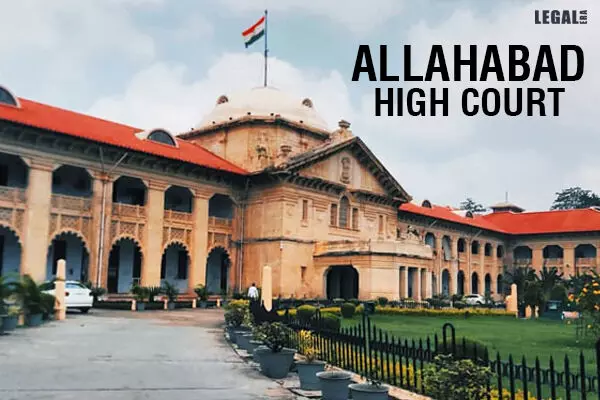- Home
- News
- Articles+
- Aerospace
- Agriculture
- Alternate Dispute Resolution
- Banking and Finance
- Bankruptcy
- Book Review
- Bribery & Corruption
- Commercial Litigation
- Competition Law
- Conference Reports
- Consumer Products
- Contract
- Corporate Governance
- Corporate Law
- Covid-19
- Cryptocurrency
- Cybersecurity
- Data Protection
- Defence
- Digital Economy
- E-commerce
- Employment Law
- Energy and Natural Resources
- Entertainment and Sports Law
- Environmental Law
- FDI
- Food and Beverage
- Health Care
- IBC Diaries
- Insurance Law
- Intellectual Property
- International Law
- Know the Law
- Labour Laws
- Litigation
- Litigation Funding
- Manufacturing
- Mergers & Acquisitions
- NFTs
- Privacy
- Private Equity
- Project Finance
- Real Estate
- Risk and Compliance
- Technology Media and Telecom
- Tributes
- Zoom In
- Take On Board
- In Focus
- Law & Policy and Regulation
- IP & Tech Era
- Viewpoint
- Arbitration & Mediation
- Tax
- Student Corner
- AI
- ESG
- Gaming
- Inclusion & Diversity
- Law Firms
- In-House
- Rankings
- E-Magazine
- Legal Era TV
- Events
- News
- Articles
- Aerospace
- Agriculture
- Alternate Dispute Resolution
- Banking and Finance
- Bankruptcy
- Book Review
- Bribery & Corruption
- Commercial Litigation
- Competition Law
- Conference Reports
- Consumer Products
- Contract
- Corporate Governance
- Corporate Law
- Covid-19
- Cryptocurrency
- Cybersecurity
- Data Protection
- Defence
- Digital Economy
- E-commerce
- Employment Law
- Energy and Natural Resources
- Entertainment and Sports Law
- Environmental Law
- FDI
- Food and Beverage
- Health Care
- IBC Diaries
- Insurance Law
- Intellectual Property
- International Law
- Know the Law
- Labour Laws
- Litigation
- Litigation Funding
- Manufacturing
- Mergers & Acquisitions
- NFTs
- Privacy
- Private Equity
- Project Finance
- Real Estate
- Risk and Compliance
- Technology Media and Telecom
- Tributes
- Zoom In
- Take On Board
- In Focus
- Law & Policy and Regulation
- IP & Tech Era
- Viewpoint
- Arbitration & Mediation
- Tax
- Student Corner
- AI
- ESG
- Gaming
- Inclusion & Diversity
- Law Firms
- In-House
- Rankings
- E-Magazine
- Legal Era TV
- Events
Allahabad High Court: Family Eligible for Insurance Payout if Dealer's Registration Valid at Time of Death

Allahabad High Court: Family Eligible for Insurance Payout if Dealer's Registration Valid at Time of Death
The Allahabad High Court held that if the deceased was registered under the Uttar Pradesh Value Added Tax Act, 2008 on the day of their death, their family would be entitled to claim insurance under the Group Insurance Policy.
The Bench of Justices Saumitra Dayal Singh and Surendra Singh-I held that if the deceased had a valid registration certificate on the date of their death, their status as a registered dealer would be maintained for the purpose of the Group Insurance Policy.
The petitioner claimed that her deceased husband was a registered dealer under the UPVAT Act on the date of his death. She therefore claimed ₹5,00,000 in insurance benefits under the Group Insurance Policy purchased by the State Government for the benefit of registered dealers, pursuant to the Circular dated March 30, 2013, issued by the Commissioner of Commercial Tax, Uttar Pradesh, Lucknow.
Conversely, the State argued that the deceased had applied to cancel the registration before his death, and the application was processed. The order cancelling the registration was uploaded after the deceased's death. However, the petitioner disputed this, arguing that the registration was surrendered after her husband's death. Therefore, she maintained that her husband was a registered dealer on the date of his death.
In the case of the deceased dealer registered under the Uttar Pradesh Value Added Tax Act, 2008, the Court, in granting relief to the deceased dealer's wife, noted that the respondent authorities had erred by failing to examine the application for cancellation of registration submitted by the deceased dealer. This oversight occurred without taking into account the fact that there was an existing registration in the name of the deceased.
The Court sent the matter back to the authorities for re-evaluation, stressing that they should take into account the application for cancellation of registration. Additionally, the Court noted that if it is determined that the registration was still in effect at the time of the dealer's death, the insurance payout should be awarded to the petitioner.



